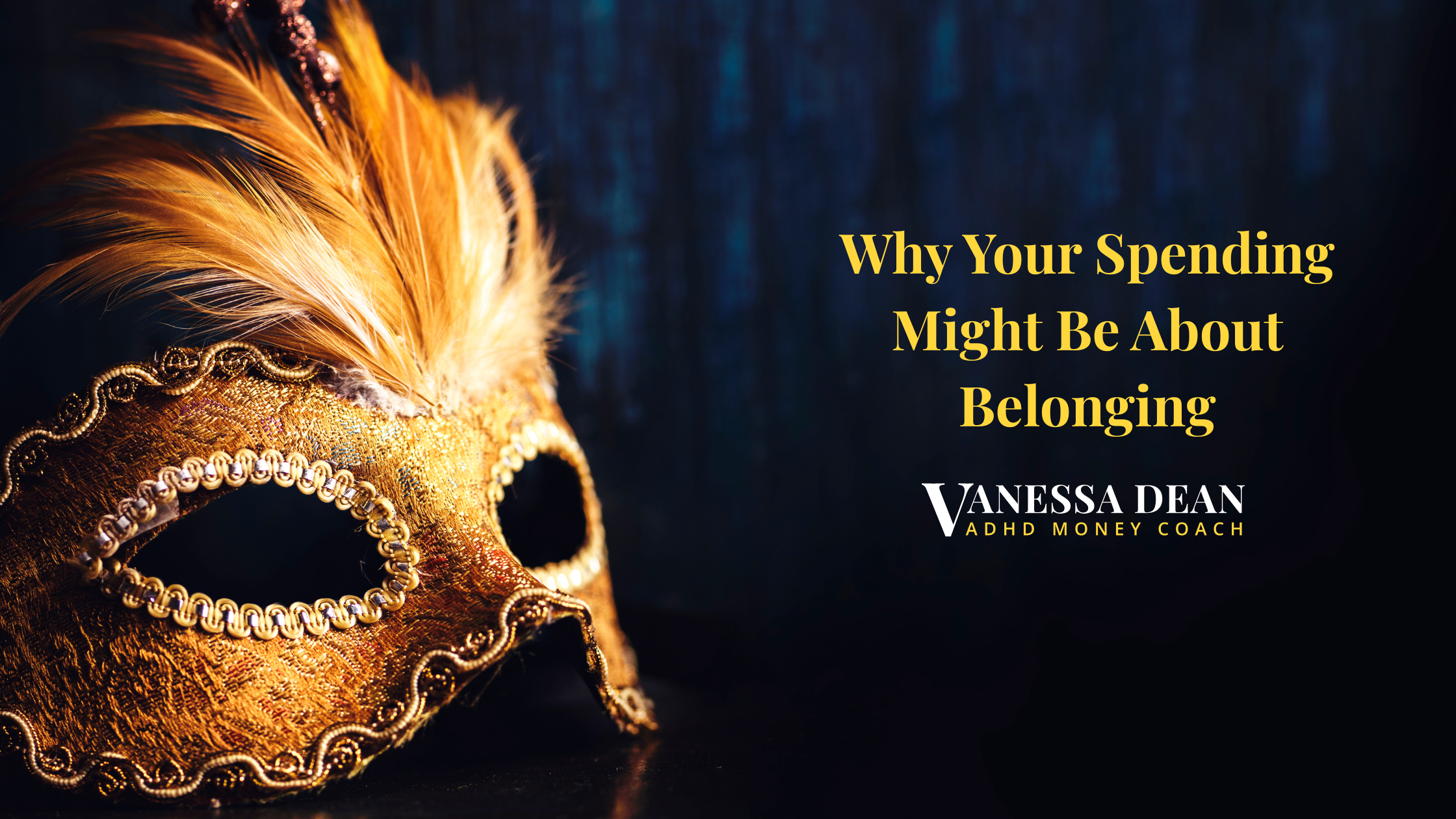Why Your Spending Might Be About Belonging
My oldest is about to hit her sweet 16. She wants this special pair of jeans for $100! Most of her clothes come from a second-hand shop. But she wants this one particular brand, and boy, are they pricy.
She has never asked for anything like this before. My kids are pretty chill when it comes to clothes; they don’t stress name brand. But this new request had me digging, because it feels like it came from left field.
”Sis, what’s going on that my frugal child wants $100 jeans?”
”Oh! Jenn has a pair, and Sammy does too. I feel left out,” she exclaimed.
And that’s when it clicked: even the most practical, grounded kids (and adults) can find themselves spending just to fit in. It’s not really about the jeans. It’s about not wanting to feel left out, wanting to feel like part of the group.
And honestly? That’s not just teen stuff.
We do it, too, especially those of us with ADHD.
It shows up as impulsive spending…
But deep down?
It’s masking, with money.
Masking is the act of hiding or changing parts of yourself to fit in or avoid being judged.
The 4 Ways We Mask With Money
Masking is when we hide our struggles—sometimes even from ourselves—to fit in, avoid shame, or feel in control. When it comes to money, ADHDers often wear one (or more) of these four masks:
1. The People-Pleaser
You say “yes” to dinner out, the group gift, or that fundraiser—even when your bank account says “no.” Spending becomes a way to maintain relationships or avoid conflict, even if it costs your peace.
2. The Perfectionist
You feel like you can’t start budgeting until everything is “just right”—the right app, the perfect planner, the ideal system. You might spend more time tweaking spreadsheets than looking at your actual spending.
3. The Impulse Spender
You buy things in the moment to feel better, solve a problem quickly, or because the dopamine rush feels so good. Later? You’re left wondering, “Why did I even buy this?”
4. The Executive Dysfunction Hider
You avoid money tasks—checking the account, opening the bills, creating a budget—because they feel overwhelming or confusing. Instead, you tell yourself, “I’ll get to it tomorrow,” and tomorrow never quite comes.
As an ADHD Money Coach, I see this happen personally. I buy gifts or cover peoples costs because I want them to like me. I buy certian clothes so I can fit in. And sometimes I even avoid looking at my bills, because I don’t have the spoons to deal with them at that time.
I help my clients by finding these triggers and addressing them. I act as a body double to help them look at bills, budgets, and checking accounts.
Are you ready to find out how masking might be impacting your money habits?
Take the quiz: Which ADHD Money Mask are You Wearing?
Let’s get curious about what’s going on behind the scenes—no shame, just insight.
Chat soon,
Vanessa Dean | ADHD Money Coach


